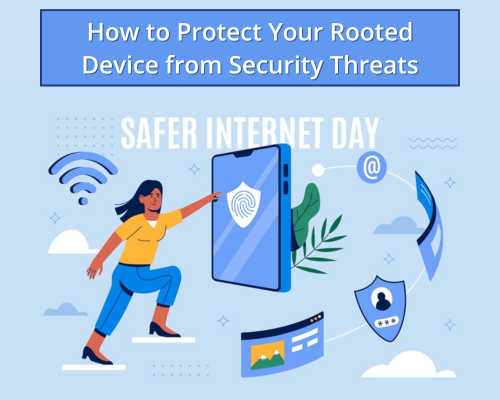Rooting your device unlocks advanced customization, but it also exposes your device to significant security threats. With unrestricted access to the operating system, rooted devices become a target for malware, unauthorized access, and data breaches. This article outlines strategies to safeguard your rooted device while balancing technical optimization and reader engagement.

1. Introduction
Rooting grants users administrative rights, enabling deeper customization and access to features typically restricted by manufacturers. However, this power comes with responsibilities to mitigate the risks associated with security vulnerabilities.
2. Understanding the Risks of Rooting
Rooted devices lose built-in safeguards, making them susceptible to:
- Malware and Viruses: With fewer restrictions, harmful software can exploit vulnerabilities.
- Data Theft: Sensitive information is more accessible to malicious apps or hackers.
- Bricking Risks: Modifications can sometimes render devices unusable.
| Risk Type | Description | Impact |
|---|---|---|
| Malware Infections | Exploits lack of system-level restrictions | Data loss, unauthorized access |
| Data Breaches | Unauthorized apps access personal data | Identity theft, privacy invasion |
| Device Instability | Poorly executed mods or apps damage the system | Loss of functionality |
3. Essential Security Measures
a. Install Trusted Software
Only download apps and modifications from reputable sources, such as:
- Official app stores (e.g., Google Play Store).
- Verified third-party sites with strong reviews.
b. Regular Updates
Outdated software is a common entry point for attacks. Regularly update:
- The rooted operating system.
- Security patches provided by developers.
c. Utilize Antivirus and Anti-Malware
Invest in a reliable security application. Popular tools include:
- Avast Mobile Security
- McAfee Mobile Security
- Bitdefender Mobile Security
| Tool | Features | Cost |
|---|---|---|
| Avast Mobile Security | Anti-malware, privacy scanner, app locking | Free/Premium |
| McAfee Mobile Security | Wi-Fi protection, theft recovery tools | Free/Premium |
| Bitdefender | Real-time protection, cloud scanning | Premium |
4. Network Security Best Practices
Rooted devices are vulnerable to network-based attacks. To minimize these risks:
- Use a VPN: Encrypt your internet traffic to shield data from prying eyes. Opt for services like NordVPN or ExpressVPN.
- Avoid Public Wi-Fi: Unsecured networks are breeding grounds for cyberattacks.
- Enable Firewall Apps: Tools like AFWall+ provide an added layer of defense.
5. Application Permissions Management
Rooted devices often grant apps unnecessary privileges, increasing risks. Regularly:
- Audit Permissions: Identify and revoke excessive access granted to apps.
- Install Permission Managers: Apps like XPrivacy or App Ops offer granular control over permissions.
Also See:
- 10 Advanced Features You Can Unlock with KingRoot
- How to Unroot Your Device with KingRoot
- Troubleshooting KingRoot Errors: Common Issues and Solutions
6. Backup and Recovery Plans
In the event of a security breach or device failure, backups ensure you don’t lose data. Steps to follow:
- Cloud Backups: Use services like Google Drive or Dropbox for automatic syncing.
- Offline Backups: Store critical data on external drives or SD cards.
- Recovery Tools: Tools like TWRP (Team Win Recovery Project) provide robust recovery options.
| Backup Type | Benefits | Best Tools |
|---|---|---|
| Cloud Backup | Accessible anywhere | Google Drive, OneDrive |
| Offline Backup | No internet required | SD cards, external drives |
| Recovery Systems | Restore rooted devices | TWRP, Titanium Backup |
7. Conclusion
Rooting your device offers unparalleled control but demands vigilance to maintain security. By implementing trusted software, regular updates, robust antivirus tools, network safeguards, and comprehensive backups, you can minimize risks effectively. Stay informed and proactive to enjoy the benefits of rooting without compromising security.
By following these steps, rooted device users can confidently navigate the complexities of customization while staying secure in the digital age.